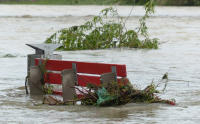During the product management class, you will go over this specialization in depth, discussing roles and areas of responsibility. If you intend to study as a product manager but are still undecided, this course will assist you in making your final decision.
So, what exactly is a product manager? Because the role of product manager was created relatively recently, papers and various experts provide varying definitions. But they all have one thing in common: a product manager is a person in a company who is in charge of developing and launching a new product.
The fact that each company interprets the product differently adds to the conceptual complexity. You may confirm this by looking at current job openings on any job search website. You could believe that companies do not fully comprehend who they are seeking for hire. But the issue is that a product manager's tasks and responsibilities cannot be the same everywhere since firms generate various goods. It is determined by the field of action and the objectives stated.
In the product management class, you will learn that a product manager is a professional working at the crossroads of business, marketing, and programming, according to an in-depth review of hundreds of job openings. He oversees the development of a new product at every level, engages with customers and investors, and keeps working on his progeny even after the technical implementation is complete. While not simple, this career holds great promise. If you want it, you must be willing to undergo continuous, thorough development in response to the appearance of new tasks. In addition to being a manager, a product manager is also a programmer, marketer, designer, etc.
What does a product manager do? We will examine the job of a product manager in more detail during the product management class. The major duty is to oversee every procedure involved in creating a new product. This includes approving or rejecting ideas; assuring technical implementation; and producing thorough reports for additional analysis and process improvement.
The complete list of duties varies depending on the particular business. Examine this block first before moving on to the next vacancy. One business, for instance, trusts its product and gives it the power to come up with original ideas. The manager is still in charge of overseeing implementation when another organization independently develops a development strategy that includes the production of the essential products.
The difference between a product manager and a project manager must also be highlighted in the product management class. The product manager breaks down the development of a new product into various stages (projects), and the project manager (often numerous) oversees the timely completion of each stage within the constraints of the available resources. The product manager develops a plan and employs assistance (project managers) to provide him with updates at each stage of the job. The product interacts with all of the professionals working on each stage, does market research, identifies the target market, conducts tests, etc. Therefore, a product manager's responsibilities at a company include coming up with ideas, formulating a development strategy, assembling a team of experts for subsequent implementation, and organizing and overseeing job completion.
In the product management class, the teachers will share information on what skills a product manager should have. One of a product manager's core competencies is strategic thinking, which is utilized to generate ideas and design a development strategy. Any product's goal is to provide clients with value and benefit. The manager then develops an "image" of the idea and delivers it to the team and management after analyzing the target audience, market dynamics, and competitive landscape. Furthermore, analysis is ongoing and continues long after deployment is complete. Without a needs analysis, the system will eventually "fade out" and go unclaimed. However, the product manager is able to recognize fresh trends and client pain areas because of ongoing market research. The consumer is pleased; new functionality is added, and the system keeps providing him with advantages and value.
It is impossible to accomplish the goals established without competent planning, task distribution throughout time, and the creation of a common road map. Consequently, a product manager needs to be able to both generate ideas and carefully plan how to implement them.
Building relationships is another crucial ability that is discussed during the product management class. Hundreds of professionals that are involved in the task regularly interact and communicate with the product manager, including programmers, designers, marketers, etc. It's crucial to be able to express oneself and communicate well with everybody, taking into account their personality and temperament. Additionally, as the project consists of a number of interconnected components that are created by many specialists, effective communication between them is crucial for a successful outcome. It requires setting up by the manager. A roadmap is a useful tool for establishing communication between several departments. The staff of the organization will be aware of whom to engage with depending on the stage of development if it is planned out in detail.
Documentation is necessary for product creation. As a leader, a product manager needs to be able to move through it and establish a new one. A product manager typically comes across the following document types: pre-project documentation – description of the idea, terms of reference, terms of reference; design documentation – work plan, technical control, schedule; working documentation – a thorough explanation of the product, reports on the work completed, drawings, timelines, extra plans, and specific tasks; and final documentation, a report on the task completed, an instruction manual, etc.
The duties of a product manager will be thoroughly discussed in the product management class. As previously said, the primary task of a product manager is to create new items that satisfy consumer demands and trends. A good expert should be able to handle the following duties in terms of extra tasks: information gathering; formation of useful conclusions; creation of the product's specifications; making a work schedule and assigning duties to personnel; promoting and selling the goods. The experts in the product management class have also added the following responsibilities: developing communication strategies for marketing development; interacting with the sales director to develop a sales strategy; working with other experts to launch new product lines and experiment with novel concepts; conducting competitive analysis and comparing similar products based on a variety of criteria.




















